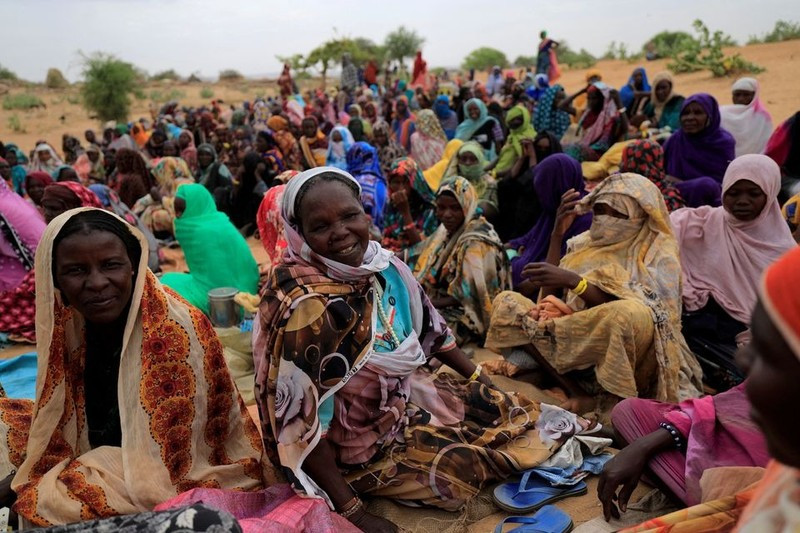The number of people suffering from acute food insecurity reached a quarter billion in 2022 — the highest figure recorded in recent years. Some 376,000 of them were facing faminelike conditions in seven countries while another 35 million people were on the edge.
Speaking at a recent meeting of the Security Council, UN Famine Prevention and Response Coordinator Reena Ghelani said that women and children are the most affected by food insecurity.
In the world, Africa is currently one of the alarming areas for food security. The International Monetary Fund (IMF) warned that rising food prices could stoke social unrest in the Dark Continent.
According to data from the Food and Agriculture Organisation of the United Nations (FAO), food prices have increased in the context that around 85 percent of the region's wheat supply comes from imports; and the major dependent countries are Tanzania, Côte d'Ivoire, Senegal, and Mozambique.
In countries such as Botswana, Lesotho, Mauritius, and Cape Verde, imports of rice, wheat, and maize account for more than 40% of demand.
The risk of food insecurity is very high in conflict-affected countries in the Sahel region, Madagascar, and the Democratic Republic of the Congo.
 |
| UN Famine Prevention and Response Coordinator Reena Ghelani (Front) speaks at a Security Council meeting at the UN headquarters in New York, on August 3, 2023 (Photo: Xinhua) |
According to the Intergovernmental Development Agency for East Africa (IGAD), more than 29 million people in the region are facing food insecurity.
UN Coordinator Reena Ghelani argued that hunger and conflict feed off of each other. Conflict and insecurity remain key drivers of hunger and famine.
Every one of the seven countries where people faced famine-like conditions last year was affected by armed conflict or extreme levels of violence. Five of those seven countries – Afghanistan, Haiti, Somalia, South Sudan, and Yemen – are regularly on the UN Security Council's agenda.
She pointed out that armed conflict destroys food systems, shatters livelihoods, and drives people from their homes, leaving many of them extremely vulnerable and hungry.
Food insecurity itself also fuels instability. Recent research highlighted by the World Food Programme has shown how food insecurity – when coupled with pre-existing grievances, desperation fuelled by poverty and inequality, and governance issues – can cause people to choose violence over peace, she said.
She stated that conflict-induced hunger is compounded by a toxic mix of climate change and economic shocks. Climate change is increasingly becoming a threat multiplier. As the stress on water and other natural resources leads to increased competition and displacement, conflicts, and hunger spread.
Hunger and conflict feed off of each other. Conflict and insecurity remain key drivers of hunger and famine.
UN Famine Prevention and Response Coordinator Reena Ghelani
Given the situation, the UN official called on the world to redouble efforts to prevent, reduce, and end conflict in all its forms. She underlined five things which are critical in reducing suffering and preventing famine.
One, ensuring parties to conflicts respect international humanitarian law. This includes protecting objects necessary for survival, such as food stocks, water systems, and other objects necessary for food production and distribution systems.
Two, making better use of existing early-warning mechanisms in a focused and effective manner and following up with concerted action.
Three, being bold and creative in finding ways to mitigate the impact of war on the most vulnerable.
Four, putting women and girls at the centre of efforts. Crises and hunger affect them disproportionately, and they also hold the key to lasting solutions.
Five, acknowledging that a halfway, fragmented response to the interconnected risks will not work. There is a need for adequate humanitarian funding, and for efforts to address the climate and economic crises.
The world is witnessing more and more traditional and non-traditional security challenges, such as conflict, energy issues, and climate change. Analysts say that the world needs to tackle these challenges as soon as possible in order to thoroughly address food insecurity.
















